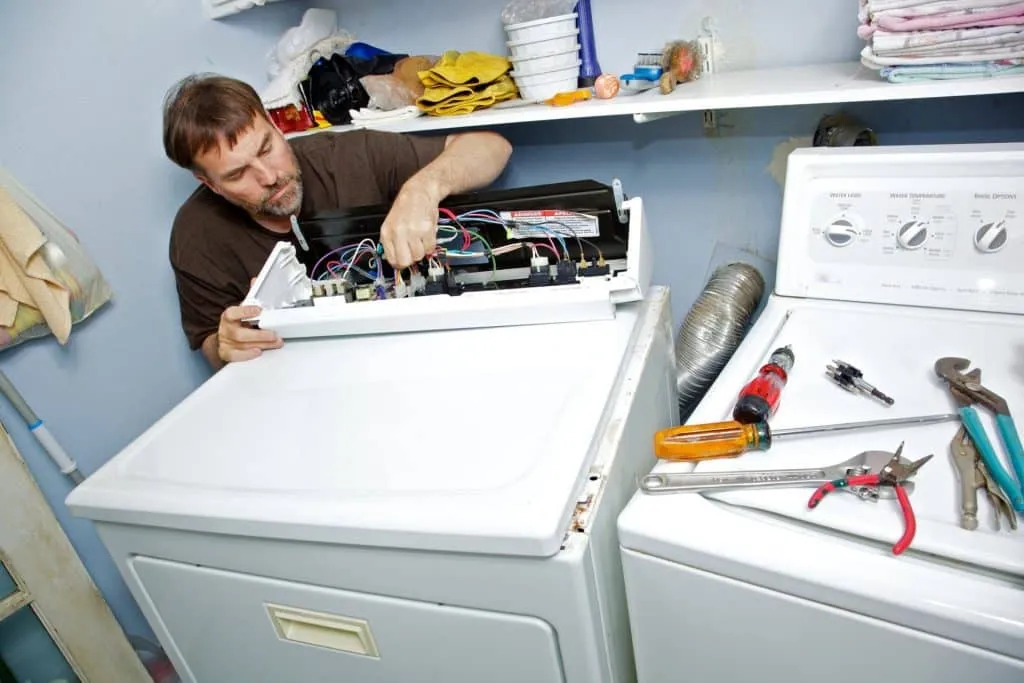Consider installing a smart electrical panel or smart outlets for greater flexibility and energy efficiency
Tips for washing machine service
A washing machine is an essential household appliance that saves time and effort when doing laundry. However, like any other machine, it requires regular maintenance and servicing to function efficiently. If neglected, washing machines can develop issues such as foul odors, drainage problems, or mechanical failures. This comprehensive guide provides expert tips for washing machine service to keep it running smoothly for years to come.

1. Regular Cleaning of the Washing Machine
One of the most crucial steps in maintaining a washing machine is regular cleaning. Over time, detergent residues, fabric softeners, and dirt accumulate inside, leading to mold growth and unpleasant smells. Here’s how to clean different parts of the washing machine:
-
Drum Cleaning: Run an empty hot water cycle with vinegar or a specialized washing machine cleaner once a month to remove buildup.
-
Detergent Drawer: Remove the detergent drawer and wash it with warm water and mild soap to prevent clogs and mold.
-
Door Seal/Gasket: Wipe the rubber gasket with a damp cloth and mild detergent to remove trapped dirt and moisture, which can cause mold and bad odors.
2. Check and Clean the Filter
The washing machine filter traps lint, debris, and small objects that might have been left in pockets. A clogged filter can lead to drainage issues and inefficient cleaning. Follow these steps:
-
Locate the filter (usually at the front or bottom of the machine, behind a small panel).
-
Remove and rinse it under running water.
-
Ensure it’s completely dry before reinserting it.
-
Clean the filter at least once every month to maintain efficiency.
3. Inspect and Clean the Drain Hose
A blocked or kinked drain hose can cause water drainage issues. Periodically inspect the hose for blockages and ensure it’s properly connected. If you notice slow drainage or standing water inside the drum:
-
Disconnect the drain hose and flush it with warm water.
-
Use a pipe cleaner to remove any clogs.
-
Reattach it securely to avoid leaks.
4. Use the Right Detergent
Using the correct detergent is vital for your washing machine’s longevity. Here’s why:
-
High-Efficiency (HE) Detergent: If you own a front-loading or high-efficiency machine, always use HE detergent to avoid excessive suds.
-
Powder vs. Liquid: Powder detergent is effective for heavy stains, while liquid detergent dissolves better in cold water cycles.
-
Avoid Overuse: Using too much detergent can cause residue buildup, leading to foul odors and potential mechanical issues.
5. Balance the Load Properly
Overloading or underloading the washing machine affects its performance and can lead to wear and tear.
-
Overloading: Too many clothes put pressure on the motor, causing strain and possible damage.
-
Underloading: Small loads can create an imbalance, leading to excessive vibrations and noise.
-
Balanced Loads: Distribute clothes evenly inside the drum to ensure a smooth cycle.
6. Maintain the Water Inlet Hose
The water inlet hose supplies water to the washing machine, and any blockage or leak can disrupt the washing process.
-
Check the hose for cracks or leaks every few months.
-
Replace the hose every 3-5 years to prevent unexpected failures.
-
Clean the mesh filter at the hose connection to remove any mineral deposits.
7. Keep the Lid/Door Open After Use
After finishing a wash cycle, leave the washing machine door or lid slightly open. This allows air circulation and prevents moisture buildup, reducing the chances of mold and mildew.
8. Address Unusual Noises Immediately
Strange noises during a wash cycle often indicate an issue. Common causes include:
-
Loose Objects: Check for coins, buttons, or small objects trapped in the drum.
-
Worn Bearings: If the machine makes grinding noises, the bearings may need replacement.
-
Unbalanced Load: Ensure clothes are evenly distributed to reduce excessive vibrations.
9. Schedule Professional Servicing Annually
Even with regular maintenance, professional servicing is recommended once a year. A technician can:
-
Inspect internal components for wear and tear.
-
Deep clean hard-to-reach parts.
-
Ensure the machine operates at peak efficiency.
10. Energy-Saving Tips for Your Washing Machine
Besides servicing, you can improve efficiency and extend the lifespan of your washing machine with these energy-saving tips:
-
Wash Full Loads: Running full loads reduces the number of cycles, saving water and electricity.
-
Use Cold Water: Cold water cycles consume less energy and protect fabric quality.
-
Choose the Right Spin Speed: Higher spin speeds remove more water, reducing drying time and saving energy.
Conclusion
Proper washing machine service and maintenance can prevent costly repairs and extend the life of your appliance. By following these simple yet effective tips—such as regular cleaning, using the right detergent, and balancing the load—you can ensure smooth operation for years. Don’t forget to schedule professional servicing annually to keep your machine in top condition.
By investing time in routine maintenance, you can enjoy hassle-free laundry days with a reliable and efficient washing machine!
Leave a Reply Cancel reply
Related Posts
Ensure the ground slopes away from your foundation. This helps prevent water from pooling near your home



